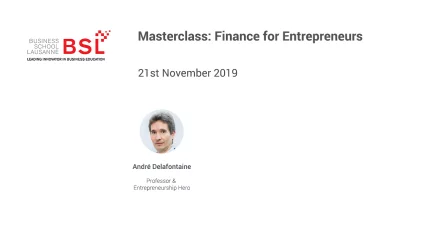The good news is that most schools and a few outside organisations offer financial assistance in terms of MBA scholarships and fellowships.
So the question is, how do you maximise your chances of obtaining a great financial aid package?
There are a plethora of talented applicants out there, and schools use MBA scholarships and fellowships to lure exceptional students to their programme. Programmes determine eligibility for MBA scholarships and fellowships in two ways. The first is based on merit, which translates to your quality as an applicant. The second is based on need, which means that your financial situation warrants financial assistance by the school. To secure most merit based scholarships and fellowships, you usually don’t need to fill out any extra forms or write more essays. Schools will automatically consider all those who apply. In order to make sure you are in the running for this money, you need to make sure that all of the pieces of your application (CV, transcripts, essays, recommendations, GMAT and interview) come together to tell your story and set your candidacy apart from the rest. In particular you should:
1. Emphasise strong leadership skills
Applicants with demonstrable leadership abilities are just what MBA programmes are looking for in their students. You should chronicle achievements that highlight your leadership abilities in your CV and essays. Of course you want to mention work related leadership examples, but also speak of extracurricular leadership activities. The key here is that you mention the impact that you personally had on the organisation in terms of quantified and/or strategic results. Also, make sure you pick recommenders that can validate these examples and speak of how you stand out as a leader.
2. Leverage strong academic performance
Schools love proven success stories. Therefore, you should leverage your strong previous academic experience. Make sure that if you are applying to an English-language programme that your transcripts and grades are translated into English and into the corresponding country’s grading scale.
3. Maximise your GMAT score
Along with leadership and academic success, performing extremely well on the GMAT can make you a more attractive candidate to woo with scholarship money. From a school’s perspective, a strong candidate who also has a 700+ score not only helps raise the school’s average, but GMAT also gives the school the flexibility to admit other exceptional applicants with lower scores.
4. Consider a programme outside the top 10
Candidates need to aim as high as their potential can realistically take them. There are many high quality programmes beyond the top-10 blinders. These programmes are usually priced lower and are also more generous in giving fellowships to top candidates. Of course, make sure the programme still meets your needs and be open to looking beyond HBS, LBS and GBS.
5. Look for scholarships targeted at underrepresented groups
MBA programmes always want to increase the diversity of their incoming classes. So look for school sponsored scholarships based on gender, race and nationality. There are also some really great organisations outside of business schools that offer scholarships and fellowships. These include The Consortium, which provides financial assistance for African Americans, Native Americans and Hispanic Americans, and the Forté Foundation, which offers scholarships aimed at women.
6. If offered, always complete the scholarship essay and/or forms
As mentioned earlier, most programmes automatically consider all applicants for scholarships and fellowships. However, some schools do have additional essays and/or applications to complete. Keep your eye on these and absolutely make sure you complete them on time. This additional essay is usually short in nature and around 200-500 words. Make sure you actually answer the question asked. Remember, your goal is to convince the admissions committee you are the best person for this scholarship. So be original but also honest. In addition to merit-based financial aid, MBA programmes also award needbased scholarships. The school makes these awards based on an analysis of an applicant’s income for the prior three years as well as the applicant’s assets. So before you submit your application, make sure you have all of your financial paperwork in order. This includes digging up your tax returns, bank statements, investment reports and property holdings for the last three years. Getting an MBA is a big investment in time and resources, but it doesn’t have to break the bank. By being the best candidate possible and seeking out scholarship opportunities, you can make business school an affordable reality.



